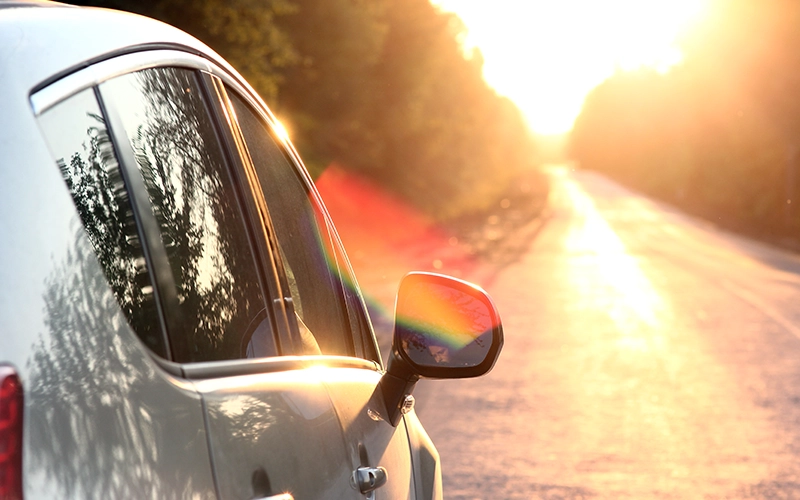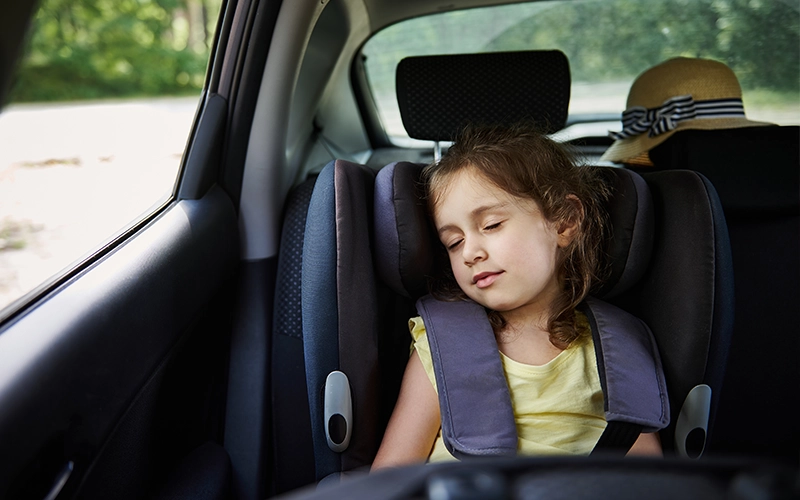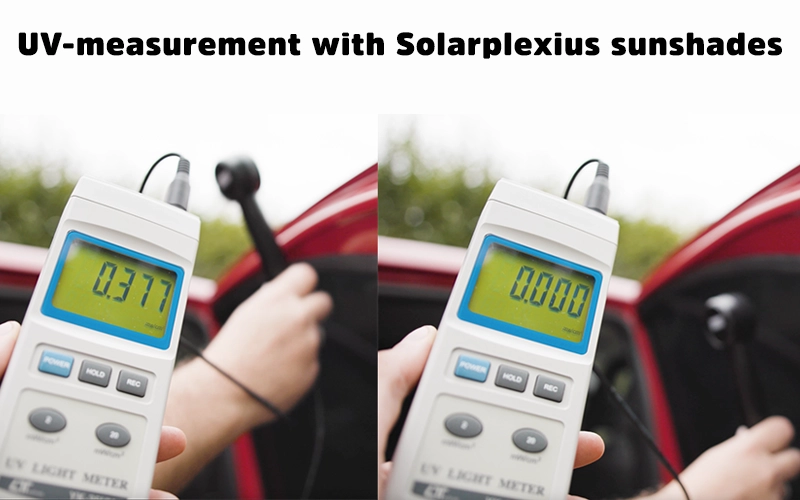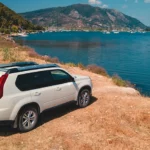
What is Solar UV Radiation and what effects it has on the human body?

Solar Ultraviolet (UV) radiation is a type of electromagnetic radiation emitted by the sun that is invisible to the naked eye. It makes up a small portion of the sun’s rays, but it is the main cause of sunburn, has strong mutagenic properties, and is classified as a human carcinogen.
Exposure to Ultraviolet (UV) radiation, especially from the sun, can have harmful effects on the skin. Prolonged and repeated exposure can lead to premature aging, skin damage, and even skin cancer. UV rays penetrate the skin’s surface, damaging the underlying cells and tissues. This can result in symptoms ranging from mild sunburn to serious skin disorders.
UV radiation is not only dangerous, but it is also deceptive. It encompasses three different types: UVA, UVB, and UVC. While UVA rays can penetrate the skin’s deepest layer — the dermis — and cause long-term skin damage, UVB rays can burn the superficial layers of the skin. Both UVA and UVB play a key role in conditions such as skin cancer. On the other hand, UVC doesn’t reach the Earth’s surface, but can be produced by man-made sources.
It is important to note that UV radiation is present every day and can harm the skin even on cloudy days when the sun is not visible. A recent study by The Skin Cancer Foundation reveals that up to 80% of the sun’s harmful UV rays can penetrate your skin even on a cloudy day.
Transmission of UV radiation through (car) glass
All types of commercial and automobile glass effectively block the majority of UVB rays, ensuring protection. However, it’s important to note that the degree of UVA transmission may vary depending on the type of glass used. While the thickness of the glass does have some impact on UV radiation transmission, it is essential to consider other factors that may play a more significant role.
The levels of UV radiation inside a car can vary based on factors like open or closed side windows and the vehicle’s position relative to the sun. Generally, UV radiation levels inside the vehicle are significantly lower compared to outside in direct sunlight.
Tinting is also recommended for work vehicles where practicable. The general public should also consider the sun protective benefits of window tinting for their vehicle.
Tinted Windows and UV Protection

Tinted windows serve a greater purpose than merely providing privacy and reducing glare; they also play a crucial role in blocking harmful UV rays. Car window tints can significantly minimize UV radiation exposure, thereby safeguarding the skin from potential harm. Specifically, high-quality car tints can block up to 99% of UV rays, providing substantial protection against both UVA and UVB rays.
Therefore, investing in quality car tints can be an effective strategy in mitigating the harmful effects of UV radiation, contributing to comprehensive skin care, and promoting overall health.
According to studies, the average person spends around 4.3 years of their life inside their car. This equates to an enormous amount of time potentially exposed to harmful UV radiation, especially for those who do a lot of daytime driving. Even short trips add up over a lifetime, increasing your cumulative exposure to UV rays.
Exposure to UV rays can be particularly harmful to young children. Their skin is more delicate and sensitive, thus more susceptible to UV radiation. If children are exposed to excessive UV rays from a young age, they may experience immediate effects like painful sunburns. But even more concerning are the long-term effects. Continuous, unprotected exposure during the early years can significantly increase the risk of developing skin conditions later in life. It is also known to cause premature skin aging, including wrinkles and age spots, even in later adolescence. Therefore, it’s crucial to teach children about the importance of sun protection from a young age. Therefore, it is more essential to have car tints installed to protect the future generations from the harmful UV rays.
Tinted windows can reduce the amount of UV radiation entering a car, thus providing passengers with significant protection against sun damage. Car window tints can effectively block up to 99% of the UVA and UVB rays. Depending on your needs, you can choose a tint that blocks more or less of the sun’s rays.
The benefits of car window tints in this context are immense. By blocking up to 99% of UVA and UVB rays, car tints can significantly reduce your UV exposure, protecting your skin from premature aging and reducing the risk of skin cancer. Additionally, tinted windows can keep the car interior cooler, improving the overall comfort of your driving experience. When viewed in totality, it’s clear that the time we spend in our cars can indeed make a significant difference to our health and wellbeing.
Always check for the legal requirements for car window tinting in the UK before you plan for the tints for your car. Solarplexius, a leading manufacturer of pre-cut car window tints, closely adheres to these guidelines. The products are designed to meet the legal requirements in the UK.
Solarplexius Car Window Tints

Solarplexius window tints are renowned for their superior UV protection capabilities. These tints are sophisticatedly engineered to absorb approximately 99.8% of harmful UV rays, thus significantly reducing the risk of skin damage while driving. With such an impressive rate of UV absorption, Solarplexius tints outperform many other options on the market, providing an unmatched level of protection against both UVA and UVB radiation.
The benefits of installing Solarplexius window tints extend beyond skin protection. The tints also contribute to a more comfortable and enjoyable driving experience. By blocking out the sun’s searing heat, these tints can help maintain a cooler and more pleasant temperature inside the car, potentially improving fuel efficiency by reducing the need for air conditioning. Furthermore, they enhance privacy and deter potential break-ins, adding another layer of security to your vehicle.
The Solarplexius tints are easy to install and do not bubble or peel over time, unlike traditional film-based tints. This makes them an excellent long-term investment for those seeking to combine comfort, protection, and functionality. Remember, by choosing Solarplexius, you’re choosing to protect not just your skin, but also the overall quality of your driving experience.
As we continue to raise awareness about the dangers of UV exposure, it’s crucial that we also champion these simple yet powerful protective measures. Remember, every effort made to reduce UV exposure counts towards our long-term health.
Sources :


